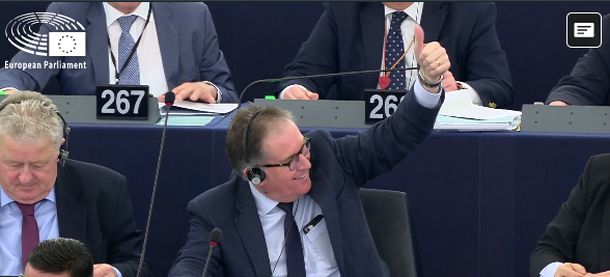European Commission seeks new fish deal with Morocco

On 5 January, the European Commission issued a request to the EU Member States, seeking their support to conduct negotiations with Morocco in order to achieve a new, long-term fisheries protocol. The fishing zones covered by the envisioned accord also include Western Saharan waters.
Published 17 January 2012
EU Commissioner for Fisheries Maria Damanaki has indicated that she aims to draw up a new fisheries protocol “in line with the position expressed by the EU Council and the vote in the European Parliament”.
The European Parliament voted down the one-year extension of the previous protocol on 14 December, over legal, environmental and economical concerns. The Parliament’s legal services had concluded that the agreement was in violation with international law, since Western Sahara is not part of Morocco, and the people of the territory have never approved the fisheries. In addition, an external evaluation report showed that the agreement was a complete waste of EU’s taxpayers money, and contributed to destruction of marine life offshore Western Sahara.
Commissioner Damanaki states that the new agreement will include legal, environmental and economical guarantees to accommodate Parliament’s and Council’s concerns. The Commissioner proposes that Morocco should comply with international law by reporting regularly on its use of EU funds for the population concerned, including the people of Western Sahara.
According to the UN Legal Opinion of 2002, economic activities in Western Sahara can only be considered lawful if the Saharawi people are consulted, consent to and benefit from those activities. Yet again, the European Commission does not exhibit any interest in the Saharawi people’s wishes.
The Commissioner has already resumed informal contacts with Rabat.
Spain pushing for new agreement
 Spain has been advocating a new protocol with Morocco relentlessly. Under the previous protocol, the country received no less than 100 of 119 available fishing licenses. The Parliament’s veto in December resulted in 64 Spanish ships, mainly from Andalusia and Canary Islands, having to leave Saharan and Moroccan waters.
Spain has been advocating a new protocol with Morocco relentlessly. Under the previous protocol, the country received no less than 100 of 119 available fishing licenses. The Parliament’s veto in December resulted in 64 Spanish ships, mainly from Andalusia and Canary Islands, having to leave Saharan and Moroccan waters. Almost immediately after taking office, the newly appointed Spanish Fisheries Minister, Miguel Arias Cañete, met with EU Commissioner Damanaki to urge her to strike a deal with Morocco as quickly as possible. Cañete also thinks the European Union should compensate Spain for losing fishing possibilities in Morocco – a cost he estimates at around 15 to 16 million Euro.
The Spanish Minister avoids all questions about Western Sahara, Spain's former colony. He has stated that he expects the EU to be flexible enough to allow Morocco to accept a deal as quickly as possible. Cañete warned that "the Spanish government will not spare any effort to ensure that the accidents that have occurred in European Parliament will not be repeated."
News
Here is the EU Council's legal advice on fishing in occupied waters
Before voting on the new EU-Morocco fish deal in 2018, extending into occupied Western Sahara, several EU Member States asked for legal advice that would determine their vote. WSRW today publishes that influential legal opinion, which appears to miss the ball entirely.
05 March 2020
Hans Corell criticizes EU fisheries in Western Sahara
The former Legal Counsel to the UN Security Counsel, Mr. Hans Corell, comments on the EU's fisheries activities in Western Sahara.
20 November 2019
EU Court reaffirms position on Western Sahara
Polisario has a case, but it should be pursued when the time is right, Court implies.
28 February 2019
European Parliament disregards Court and adopts Morocco fish deal
Notwithstanding four consecutive rulings of the EU's highest Court calling such a practice illegal, the European Parliament has just now voted in favour of the EU-Morocco Fisheries Agreement that will be applied to the waters of occupied Western Sahara.
12 February 2019


